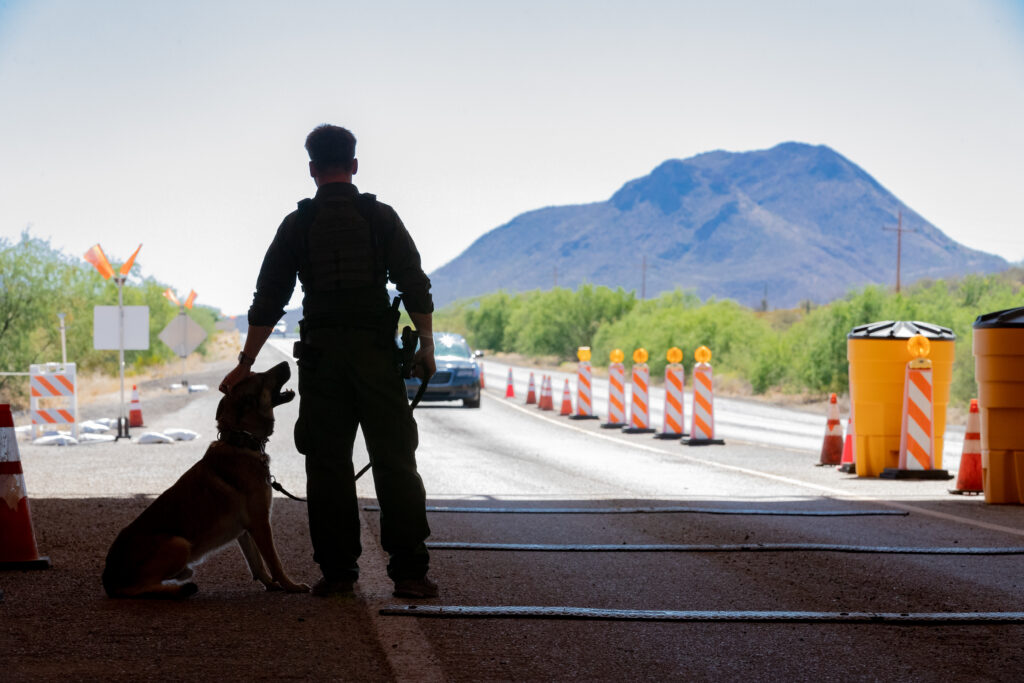CBP Issues Withhold Release Order on Chinese Fishing Fleet
CBP will detain imports of seafood from Dalian Ocean Fishing Co., Ltd. due to forced labor indications

On June 17, 2020, Tucson Sector Border Patrol Agents conduct operations at the Highway 86 checkpoint near Tucson, Ariz. (U.S. Customs and Border Protection photo by Jerry Glaser)
Today, Secretary of Homeland Security Alejandro N. Mayorkas announced that U.S. Customs and Border Protection (CBP) issued a Withhold Release Order against Dalian Ocean Fishing Co., Ltd. based on information that reasonably indicates the use of forced labor in the entity’s fishing operations.
“Companies that exploit their workers have no place doing business in the United States,” said Secretary Mayorkas. “Products made from forced labor not only exploit workers, but hurt American businesses and expose consumers to unethical purchases. This Withhold Release Order will ensure we continue to protect the human rights of those working in the distant water fishing industry, while also upholding safeguarding our national and economic security.”
CBP identified all 11 of the International Labour Organization’s indicators of forced labor during its investigation including physical violence, withholding of wages, and abusive working and living conditions. Effective immediately, the new Withhold Release Order instructs CBP personnel at all U.S. ports of entry to begin detaining tuna, swordfish, and other seafood harvested by vessels owned or operated by the Dalian Ocean Fishing Co., Ltd. This is the first Withhold Release Order CBP has issued against an entire fleet of fishing vessels.
“This Withhold Release Order will help protect vulnerable workers while leveling the playing field for U.S. fisherman and seafood producers,” said CBP Senior Official Performing the Duties of the Commissioner Troy Miller. “CBP is a global leader in the forced labor enforcement and we will continue to protect American consumers and businesses from goods made by modern slavery.”
Federal statute 19 U.S.C. 1307 prohibits the importation of merchandise produced, wholly or in part, by convict labor, forced labor, and/or indentured labor, including forced or indentured child labor. CBP detains shipments of goods suspected of being imported in violation of this statute. Importers of detained shipments have the opportunity to export their shipments or demonstrate that the merchandise was not produced with forced labor.
The International Labour Organization estimates that 25 million workers suffer under conditions of forced labor worldwide. Some foreign companies exploit forced labor in order to sell goods below market value, hurting law-abiding businesses, threatening American jobs, and leading consumers to making unethical purchases.
The Department of Homeland Security, through its Blue Campaign, continues to educate the public, law enforcement, and other industry partners to recognize and report the indicators of human trafficking. The announcement of the Withhold Release Order reiterates CBP’s commitment to combat forced labor.
The distant water fishing industry is at high risk of forced labor as foreign companies often coerce vulnerable migrant workers to perform hazardous labor for little or no pay aboard distant water fishing vessels that may spend months at sea without making port calls.
Forced labor in the distant water fishing industry is often linked to other fisheries abuses. Illegal, unreported, and unregulated fishing threatens the livelihoods of law-abiding American seafood producers and damages ocean ecosystems.
CBP issued earlier Withhold Release Orders on individual distant water fishing vessels, such as the Lien Yi Hsing No. 12, the Da Wang, and the Yu Long No. 2. All Withhold Release Orders are publicly available and listed by country on CBP.gov.
Any person or organization that has reason to believe merchandise produced with the use of forced labor is being, or likely to be, imported into the United States can report detailed allegations by contacting CBP through the e-Allegations Online Trade Violation Reporting System or by calling 1-800-BE-ALERT.